CIBI rebukes Fourth Estate, defends NLA-KGL licensing deal
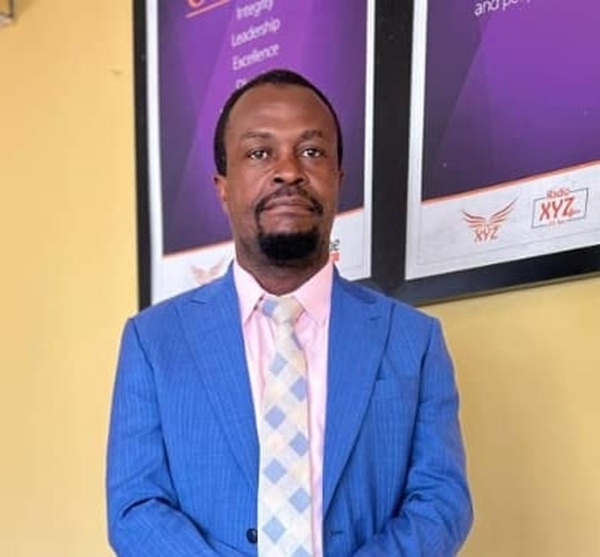 Mr. Alistair Nelson
Mr. Alistair Nelson
The Chamber of Indigenous Business & Investors (CIBI) has sharply criticised The Fourth Estate and the Media Foundation for West Africa (MFWA), accusing them of engaging in poor and unethical journalism in their recent investigative report on the National Lottery Authority’s (NLA) partnership with KGL Technology Limited.
According to the Fourth Estate, the NLA had awarded a lucrative GHS 3 billion business to KGL in exchange for just GHS 170 million annually under what it described as a 15-year contract signed in 2024.
But in a strongly worded response signed by Mr. Alistair Nelson, Executive Director of CIBI, described the report as “misleading, sensational, and grossly ignorant of lottery operations,” insisting that the NLA-KGL relationship is not a contract but a licensing arrangement legally backed by the National Lotto Act, 2006 (Act 722) and its regulations.
Licensing vs. Contract DisputeCIBI stressed that KGL Technology Limited does not hold a procurement contract with the NLA but rather a license issued by the Authority’s Board, in line with sections 5–14 of Act 722 and Regulations 12–13 of L.I. 1948.
“All licensing agreements issued by NLA have never gone through procurement because they are not contracts but licenses,” the statement noted.
The group further pointed out that several companies, including Simnet Ghana Limited, Lots Services Ghana Limited, Alpha Lotto Limited, and long-standing Lotto Marketing Companies, already operate under similar long-term agreements with the NLA, some dating back decades.
The “GHS 3 Billion Business” ClaimCIBI also dismissed claims that the NLA had handed over a GHS 3 billion business to KGL.
It cited official revenue data showing that the NLA’s highest annual revenue was GHS 401 million in 2017, while between 2013 and 2020, the Authority generated a total of GHS 2.7 billion — an average of GHS 345 million per year.
During the same period, NLA paid out GHS 1.3 billion in winnings.
“The NLA has never generated GHS 3 billion in any single year since its establishment in 1957,” the group said.
CIBI argued that the licensing arrangement with KGL has yielded far better returns for the state than the NLA’s own operations in the past. From 2013 to 2020, the NLA paid GHS 182 million into the Consolidated Fund. In comparison, CIBI noted, KGL has been paying GHS 170 million annually since 2019 — far surpassing NLA’s historical contributions.
Monopoly and Capacity IssuesAddressing concerns about exclusivity, CIBI clarified that each USSD and online lottery license has always been reserved for a single operator per product, citing examples such as *787# for Wotiriyie Lottery and *959# for NLA’s 5/90 game.
The group also emphasised that under Act 722, the NLA cannot directly sell lottery products or pre-finance operations, hence the reliance on licensed collaborators like KGL.
It added that KGL shoulders all operational risks, including IT infrastructure, marketing, payment of winnings, and daily fees to telecom providers.
ConclusionCIBI described the Fourth Estate/MFWA report as “bogus and malicious,” urging the media organisations to correct the record.
“The NLA-KGL deal is one of the best arrangements in the Authority’s history,” the group concluded.
Source: Classfmonline.com/cecil Mensah
Trending Business

Transport Ministry: Airport passenger service charge increased to GHS100
07:13
ASSMA's one-week ultimatum threat to mining sector peace, stability - Ghana Chamber of Mines
22:23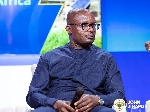
Ghana showcases breakthrough in regional power integration at 2025 West Africa Energy Cooperation summit
15:17
NPA recognised as key gov't agency championing national standards
14:09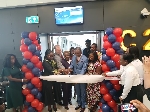
Ghana Tourism Authority launches maiden Accra-Atlanta flight
13:52
CMC MD assesses operational performance in readiness for its 24-Hour operations launch
09:00
Gov't launches digital portal to streamline net-metering and boost solar adoption
07:22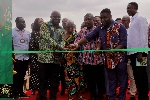
Volta Region opens Agricultural Fair to launch 41st National Farmers’ Day celebrations
23:26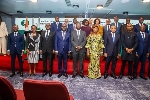
EBID opens first regional representative office in Abidjan
13:45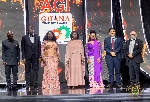
Opoku-Agyemang reaffirms gov't’s push for industrial-led growth at AGI Awards
10:28



